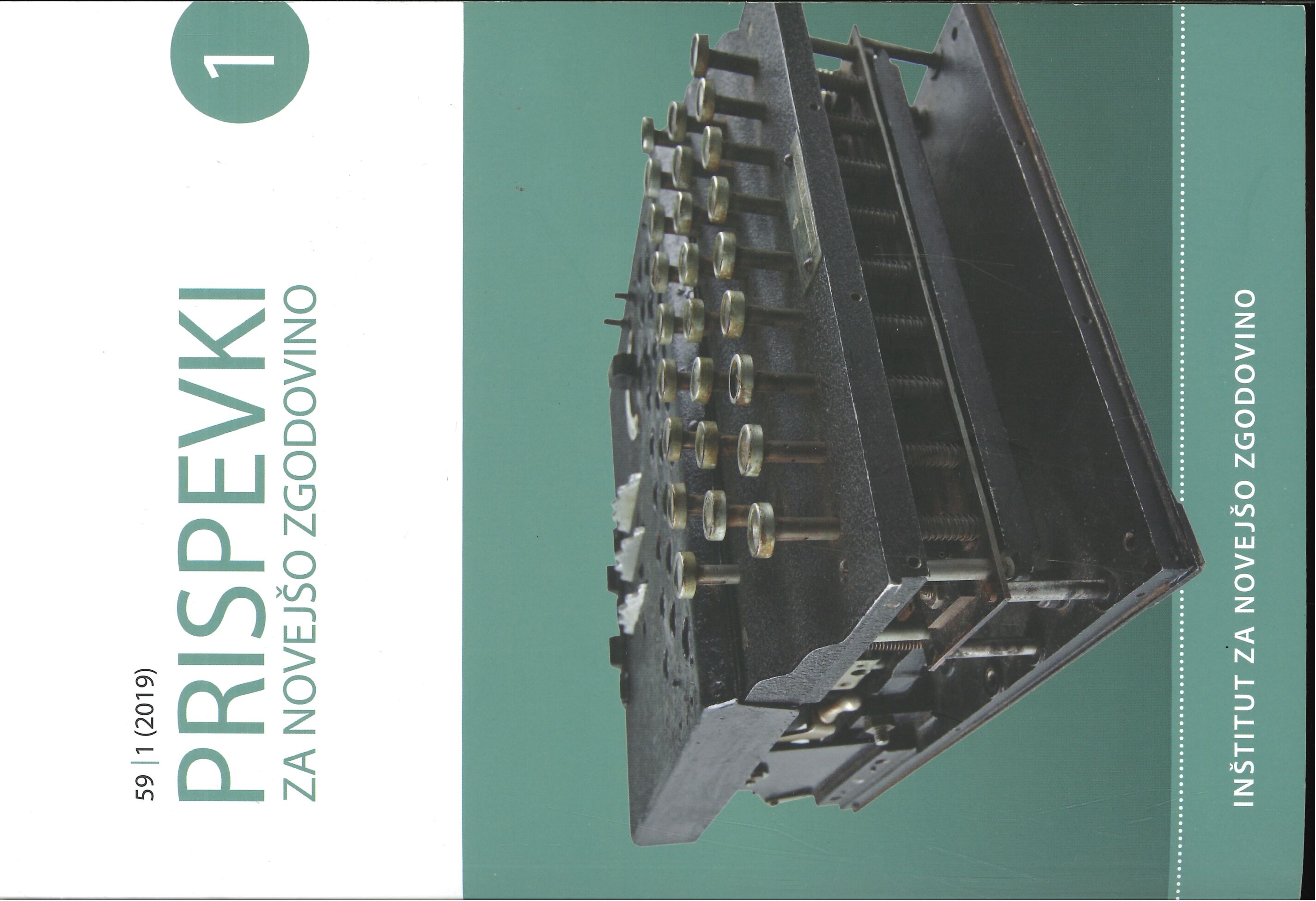Debating Evil
Using Word Embeddings to Analyse Parliamentary Debates on War Criminals in the Netherlands
DOI:
https://doi.org/10.51663/pnz.59.1.07Keywords:
War Criminals, Penal History, Parliamentary History, Word Embedding Models, Word2VecAbstract
We are proposing a method to investigate changes in historical discourse by using large bodies of text and word embedding models. As a case study, we investigate discussions in Dutch Parliament about the punishment of war criminals in the period 1945-1975. We will demonstrate how word embedding models, trained with Google’s Word2Vec algorithm, can be used to trace historical developments in parliamentary vocabulary through time.
References
Bootsma, Peter, and Peter van Griensven. 2003. “‘Teleurstelling Is Mijn Opperste Emotie’: Vragen over Emotie in de Politiek Aan A.A.M. van Agt.” In Jaarboek Parlementaire Geschiedenis, 2003. Emotie in de Politiek, edited by Carla van Baalen, Willem Breedveid, Jan Willem Brouwer, Peter van Griensven, Jan Ramakers, and Inke Secker, 121 – 25. Den Haag: SDU Uitgevers.
Futselaar, Ralf. 2015. Gevangenissen in oorlogstijd: 1940-1945. 1st ed. Amsterdam: Boom.
Gelbukh, Alexander. 2015. Computational Linguistics and Intelligent Text Processing: 16th International Conference, CICLing 2015, Cairo, Egypt, April 14-20, 2015, Proceedings. Springer.
Grevers, Helen. 2013. Van landverraders tot goede vaderlanders: de opsluiting van collaborateurs in Nederland en België, 1944-1950. Amsterdam: Balans.
Haan, Ido de. 1997. Na de ondergang: de herinnering aan de Jodenvervolging in Nederland 1945-1995. Den Haag: SDU.
Heijden, Chris van der. 2012. Dat nooit meer: de nasleep van de Tweede Wereldoorlog in Nederland. 3rd ed. Amsterdam: Atlas Contact.
Olieman, Alex, Kaspar Beelen, Milan van Lange, Jaap Kamps, and Maarten Marx. 2017. “Good Applications for Crummy Entity Linkers? The Case of Corpus Selection in Digital Humanities.” CoRR abs/1708.01162. http://arxiv.org/abs/1708.01162.
Piersma, Hinke. 2005. De Drie van Breda: Duitse Oorlogsmisdadigers in Nederlandse Gevangenschap, 1945-1989. 1st ed. Amsterdam: Balans.
Schmidt, Benjamin. 2015. “Vector Space Models for the Digital Humanities.” Ben’s Bookworm Blog. Accessed October 25, 2015. http://bookworm.benschmidt.org/posts/2015-10-25-Word-Embeddings.html.
———. 2017. “Bmschmidt/WordVectors: Tools for Creating and Analyzing Vector-Space Models of Texts Version 2.0 from GitHub.” GitHub. Accessed on November 5, 2017. https://rdrr.io/github/bmschmidt/wordVectors/.
Singhal, Amit. 2001. “Modern Information Retrieval: A Brief Overview.” Bulletin of the IEEE Computer Society Technical Committee on Data Engineering 24: 9.
Smits, Hans. 2008. Strafrechthervormers en hemelbestormers: opkomst en teloorgang van de Coornhert-Liga. Amsterdam: Aksant.
Tames, Ismee. 2013. Doorn in het vlees: foute Nederlanders in de jaren vijftig en zestig. Erfenissen van Collaboratie. Amsterdam: Balans.
Withuis, Jolande. 2002. Erkenning: van oorlogstrauma naar klaagcultuur. Amsterdam: De Bezige Bij.
Van Lange, Milan. Debating Evil Repository. Distributed by Github. https://github.com/MilanvanL/debating_evil.
Marx, M., J. Van Doornik, A. Nusselder, and L. Buitinck. 2012. “Thematic collection: PoliticalMashup and Dutch Parliamentary Proceedings 1814-2013.” Distributed by Data Archiving and Networked Services (DANS). https://doi.org/10.17026/dans-zg8-9x2v.
Published
Issue
Section
License
Authors who publish with this journal agree to the following terms:
- Authors retain copyright and grant the journal right of first publication with the work simultaneously licensed under a Creative Commons Attribution License that allows others to share the work with an acknowledgement of the work's authorship and initial publication in this journal.
- Authors are able to enter into separate, additional contractual arrangements for the non-exclusive distribution of the journal's published version of the work (e.g., post it to an institutional repository or publish it in a book), with an acknowledgement of its initial publication in this journal.
- Authors are permitted and encouraged to post their work online (e.g., in institutional repositories or on their website) prior to and during the submission process, as it can lead to productive exchanges, as well as earlier and greater citation of published work (See The Effect of Open Access).


